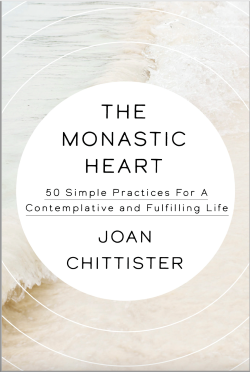To take someone into the home…
You can’t be in a monastery very long before you realize that there is always someone there besides the members of the community.  People come to pray with the community, to spend some time in the hermitages, to make a retreat, to celebrate the great feasts, to withdraw from their own daily lives for a while. Guests are a large part of any monastery. The Rule of Benedict in the sixth century devoted a whole segment to it.
People come to pray with the community, to spend some time in the hermitages, to make a retreat, to celebrate the great feasts, to withdraw from their own daily lives for a while. Guests are a large part of any monastery. The Rule of Benedict in the sixth century devoted a whole segment to it.
The Rule reads, “Let an old monastic be placed at the door of the monastery, who knows how to take a message and deliver a reply, one who cannot run about because of age. As soon as anyone knocks, or a poor person calls out, the porter replies, ‘Benedicite,’ ‘God bless you.’” Or in modern parlance, “Bless you for coming to interrupt our perfect lives.” Or, “Thank you for saving us from being out of touch with the very people we need to be aware of and hear from and learn from and uphold.
Hospitality calls us to communicate dignity and respectability to those whom others may consider unacceptable. We welcome those whom others refuse to care for simply because “they’re not our kind of people.” They are all people, you feel just not “our kind.”
To take someone into the home, the country, the job, your life, and fail to make them comfortable, to care for them well, is to fail at the very basic level of humanity. Strangers are to be made secure, not made beholden to you, not made to grovel with gratitude. By being with you, they are meant to know, to feel what it really means to be accepted.
Bedouins, nomadic herders in the desert, always sat with their tent flaps open, we’re told, just in case a stranger in need of water would come their way. Just in case they might someday need water themselves. Hospitality secures peace in a system. It makes us all potential friends. It saves you and me from the soul-corroding suspicion and skepticism that those who come across our borders hear from us a hundred miles before they even get here.
Then, if we are lucky, if we are brave, if we are open to Jesus in disguise, having trusted the first stranger, we gather the courage to open our lives. We lose the irrational fears that plague us about people who are different from you and me. We begin to see in others the responses we see in ourselves: joy, pain, fear, desperation, need, hope, ability, commitment, love, and relentless attempts to succeed at the fine art of being human.
Then we become more human ourselves. We free ourselves from the tension, the fear, the stress that comes from defending ourselves against enemies that are not there. And most of all, we cry aloud that others may see the persons behind the dusty feet and tangled hair, the tired eyes and stained jackets, and say to them, as does the old monk in the Rule, “Benedicte.”
—from The Monastic Heart: 50 Simple Practices for a Contemplative and Fulfilling Life, Convergent by Joan Chittister
